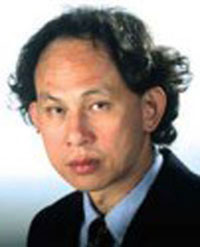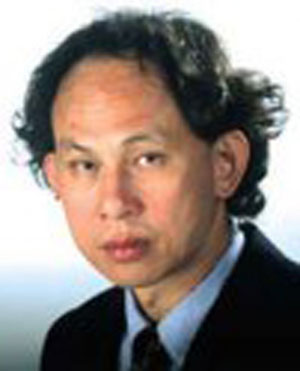It would be a great tragedy if the current draft media law before the Hluttaw—Burma’s national level legislature—sails through. All the energy and goodwill that has been invested, especially by international and regional media organizations as well as individual journalists and academics, would be wasted. They sincerely wanted to see free media institutions in Burma take root in an emerging democratic country. To do that, the government has to provide an atmosphere, including legislative structures, conducive to free media development.
In less than two years, the media landscape inside once one of the world’s most isolated countries has been transformed and changed for the better. There is a high level of expectation that Burma’s media development would serve as a model for other developing countries to emulate. However, in the past few days, old habits have come alive and could unravel all the promises and good media work that stakeholders have painstakingly engaged in and constructed.
Burma’s quick recognition from the outside world is mainly credited to the burgeoning press freedom conditions—obviously much to the chagrin of other countries in the Association of Southeast Asian Nations (Asean). Without this local media dynamism and the enthusiasm of journalists, the media landscape would have been different. Look around at neighboring countries—their journalists are more docile. So far, print journalists are the most active and they have challenged the government’s attempts to stifle them. Judging from the number of new publications, print journalism in Burma is alive and well.
One important tool local journalists have learned—the only way to effectively counter the powers-that-be—is to get organized and obtain the highest professional media standards. That helps explain why in the past 15 months, literally all major international media organizations, news establishments and media trainers have entered the country and offered a plethora of short and long-term assistance programs. Credit must be given to the Ministry of Information and Ministry of Foreign Affairs and other agencies for lifting the longstanding ban on media organizations and journalists.
Like the earlier days in Thailand and Indonesia, the Tatmadaw (Bumra’s military) is watching closely the impact of rapid expansion of media space.
It is interesting to note that despite the strong desire to uplift the country’s freedom of expression, the authorities, especially the security apparatus, have had to confront the downside of media freedom from within and outside since last June with the outbreak of communal violence in Arakan State and subsequently the fighting with the Kachin rebels, which received widespread and intense media coverage. In retrospect, the government evidently mishandled both events as far as information on the ground was concerned, as senior officials were in constant denial. Apart from state produced information, access to news scenes in Arakan and Kachin states was difficult but not impossible. Differing information and evidence emerged day to day in the independent press, through reports by Rangoon-based exiled journalists, and from foreign media that challenged the official versions. All these took the government by surprise.
In the past, it was not possible to publish or receive fresh and independent information or air it from non-official sources. Even though well established local publications were supportive of official information, independent information and reports on the two crises were overwhelming. These days, journalists in Burma, especially those with experience in underground reporting, have networks of information-sharing and filtering which utilize the Internet, social media and fresh information from bloggers, Twitter, and SMS. Reports about minorities are written by hundreds of former clandestine journalists, trained to report and verify information in conflict zones. They value accurate information and assessment as it affects their credibility. Even the government has constantly admitted the exiled media shows better quality and trustworthiness.
The squabbles with the media have convinced authorities to impose stronger restrictions on matters of public and national security and secret records. Item 4 in Chapter 3, on the rights of journalists, states clearly they can have no access to so-called secret documents or matters pertaining to public and national security. As in the countries with access to information laws, such as Thailand and Indonesia, the word “secret” or in certain cases “highly confidential” are used for non-security or public documents as well simply to avoid broader scrutiny. Such practices give extra power to officials to deny access or even destroy documents if need be. With such a strong factor in the draft, it is doubtful if Burma would institute a law to promote the people’s right to know.
The proposed Press Council should be independent and self-regulatory. Journalists and media personalities the author has encountered so far, both veteran and young, are capable of running a non-partisan media and regulating the body without fear or favor. The government should be open-minded and learn from the experiences of an independent press council in the region—such as Thailand and Indonesia.
Major international free media organizations—26 in total—that have regularly evaluated media conditions around the world, including Burma, are increasingly doubtful over the country’s future media trends. Coming as it does ahead of World Press Freedom Day on May 3, Burma’s positive rating and impression in the past one year would fall further among major free-media indices. The country, albeit against all odds and disbelief, has made much progress on media freedom and reforms. The ratings, despite some Western biases, are an annual ritual pivotal to providing a general picture of Burma’s latest overall developments. Confidence in foreign governments and investors are up and downs in relation to these systematic evaluations of media freedom.
Free and independent media will be a boon to Burma’s democratic development. It is to be hoped that common sense will prevail among the lawmakers when the bill is up for approval. It is clear that the benefits far exceed the negatives, which are now being drummed up by the conservatives to curtail free flow of information and demonize the media. Burma has already shown to Asean and the international community the most tangible ways the power of freedom of expression has in transforming the country from a pariah state into one of the most talked about nations on earth.
This article first appeared in the Bangkok-based The Nation newspaper. Kavi Chongkittavorn is assistant group editor of Nation Media Group and his views do not necessarily reflect those of The Irrawaddy
















